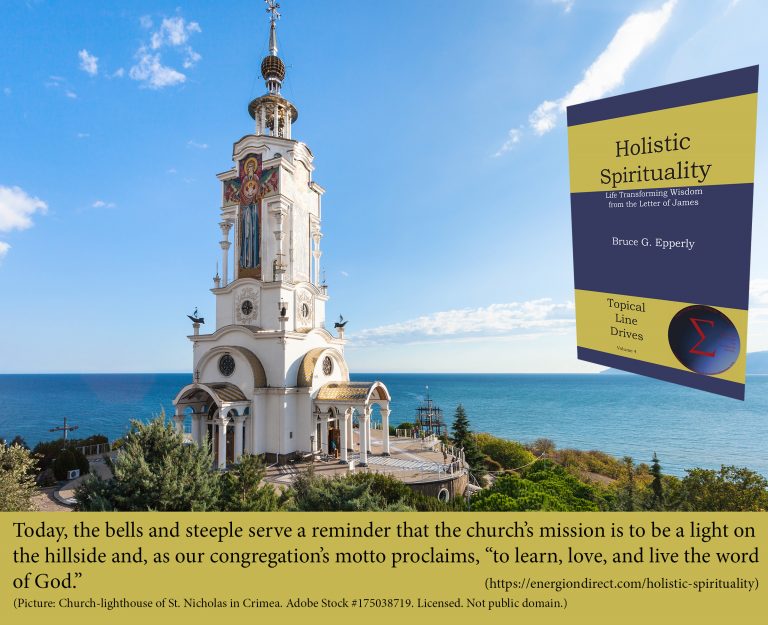Of Hermeneutics and Annoyance
I tend to harp on hermeneutics. Sometimes that’s precisely what people want me to do. Groups that have me back to speak twice, at least, are generally happy with that topic. But others find it annoying, pedantic, and perhaps intellectually snobbish! “Why can’t we just read our Bibles and get on with it?” they ask. Or “Quit making it so complicated!”
I understand their frustration, but without a great deal of sympathy. Christians have been “just getting on with it” for centuries, and the result is that we’re scattered all over the map in terms of how we understand scripture. I don’t consider having a variety of interpretations to be a problem in itself. To those who yearn for the magisterium, I would say that this simply means choosing one probably wrong option and then sticking with it.
To a certain extent, just getting on and reading the Bible is a workable devotional approach. But even so, such a devotional approach requires a filter. Just try reading Numbers 31 devotionally and you may see the problem. Now there are many approaches to handling Numbers 31, though the most common one seems to be to pretend it’s not there as long as possible. Pretending that less enlightening (or apparently so) passages aren’t there is an approach to interpretation and application.
This approach can even be made explicit. I’m embedding a clip from The West Wing, in which Toby Ziegler discusses the death penalty with his Rabbi. In this discussion the fictional rabbi expresses explicitly an approach many take implicitly. (To those annoying people who like to point out that various quotes/clips/etc come from fiction, I’m aware of it. I find fiction an excellent source for launching thinking.)
Relatively few people (though there are some) would state this quite as explicitly as the rabbi does at the end, “wrong by any modern standard.” But it’s a common hermeneutic in practice.
And as long as you’re prepared to argue modern standards or what seems, to you, to be spiritually enlightening, and to do so with other people who share your view of “enlightening,” that approach will work. It works quite well on the more conservative side as well, just with different definitions applied to what to keep and what not to.
The Bible is susceptible to this sort of thing because it does reflect a long time period and lets us see a variety of experiences in different times and places. It doesn’t codify that much, and where it does, it is often under circumstances that don’t apply. In a post yesterday I used Leviticus 18:22 and 19:34. Those each evoke extremely controversial topics. Here’s another text I used in the same Sunday School class:
The Lord spoke to Moses, saying: 2 When any of you sin and commit a trespass against the Lord by deceiving a neighbor in a matter of a deposit or a pledge, or by robbery, or if you have defrauded a neighbor, 3 or have found something lost and lied about it—if you swear falsely regarding any of the various things that one may do and sin thereby— 4 when you have sinned and realize your guilt, and would restore what you took by robbery or by fraud or the deposit that was committed to you, or the lost thing that you found, 5 or anything else about which you have sworn falsely, you shall repay the principal amount and shall add one-fifth to it. You shall pay it to its owner when you realize your guilt. 6 And you shall bring to the priest, as your guilt offering to the Lord, a ram without blemish from the flock, or its equivalent, for a guilt offering. 7 The priest shall make atonement on your behalf before the Lord, and you shall be forgiven for any of the things that one may do and incur guilt thereby. (Leviticus 6:1-7, NRSV, from Biblegateway.com.)
In this passage the class largely came to the same conclusion about what applied and what didn’t with some variation. Feeling guilt, accepting responsibility, making restitution—these all seemed very applicable. Not so much bringing a ram without blemish.
That doesn’t reflect a bad hermeneutic. In this case, most people were distinguishing lasting principles from temporary requirements. Both Judaism and Christianity have theology that removes the need for animal sacrifices in the present.
The problem comes in when we try to discuss, and more particularly when we try to enforce our view of scripture on someone else. I’m fond of a quote from one of the books I publish, Philosophy for Believers. On page 119 of that book he says:
Philosophers sometimes appear to talk in obscure ways. They do so because they take into consideration what people often overlook.
In this case, I’m not simply looking for considerations that are overlooked, though they are, but for the underlying approach that results in a particular view. Quite frequently the way someone understands a scripture is simply locked into the tradition so thoroughly that an individual doesn’t even think about why. A single tradition might function well that way, but when you then discuss the text with someone else, the argument gets immediately heated.
The reason these arguments get heated quickly is both that we often have a great deal of emotion (way too much, I believe) invested in our religious views and spiritual practices, and also that the other person seems obtuse and perhaps bullheaded not to see the obviously correct and plainly clear meaning of the passage presented. But you may have grown up and studied in a tradition that sees that passage completely differently. The difference may be in what applies and doesn’t, but it can also be in just what it means and how it applies. (I discuss this more in my essay Facing the Proof-Text Method.)
Let me give an example. In the sermon on the mount, Jesus says a number of things, but I had a debate that dealt with two of them. It started with this one:
33 “Again, you have heard that it was said to those of ancient times, ‘You shall not swear falsely, but carry out the vows you have made to the Lord.’ 34 But I say to you, Do not swear at all, either by heaven, for it is the throne of God, 35 or by the earth, for it is his footstool, or by Jerusalem, for it is the city of the great King. 36 And do not swear by your head, for you cannot make one hair white or black. 37 Let your word be ‘Yes, Yes’ or ‘No, No’; anything more than this comes from the evil one. (Matthew 5:33-37, NRSV, from Biblegateway.com.)
Now it happens that I believe that this is an intensified command that we should conduct all of our dealings with others truthfully and with integrity, and thus it would negate the need for an oath. I would go so far as to consider “I swear to you” in conversations or business dealings to be at least unnecessary, and probably more so, it reflects the idea that some of my conversation can be a lie. I don’t think it forbids me from taking an oath to tell the truth, the whole truth, and nothing but the truth in court, though I consider “so help me God” to be questionable for the same reason as “I swear to you.” I speak always with God’s help, not being able to take my next breath without it. The words I would utter in court should be no more and can be no less with the help of God than any others.
Now you can disagree with me on my interpretation. That’s part of my point. I’m not even fully explaining my approach, though many will see how I’m reading the passage. I’m certainly, in this case, allowing Jesus some hyperbole. For example, I would identify “anything more than this comes from the evil one” as hyperbole. Am I right? That would be an excellent point for discussion.
Which, in this exchange, my correspondent and I did. I asked him how he interpreted it. He told me that it should be taken in the plain sense. I asked him to define that further. He said it should be taken as it would be understood by any high school student in the U. S. Having dealt with not a few high school students, I wasn’t quite sure what to make of that, but I then brought my counter-example.
27 “You have heard that it was said, ‘You shall not commit adultery.’ 28 But I say to you that everyone who looks at a woman with lust has already committed adultery with her in his heart. 29 If your right eye causes you to sin, tear it out and throw it away; it is better for you to lose one of your members than for your whole body to be thrown into hell. 30 And if your right hand causes you to sin, cut it off and throw it away; it is better for you to lose one of your members than for your whole body to go into hell. (Matthew 5:27-30, NRSV, from Biblegateway.com.)
My question here was (and is) just how an American high school student would undersand “tear it out and throw it away” or “cut it off and throw it away.” I see these as hyperbole, emphasizing the need to avoid lust, to get in ahead of the cause of adultery and not just stop before one crosses the threshold.
My correspondent said that this passage should be understood as one’s willingness to stand up for one’s principles even to physical assault or martyrdom. I have great doubts that this is the way the average high school student would read the passage.
Now for me, further discussion of the applicability of the passages would require that we first address our points of interpretation. Is it possible that Jesus used hyperbole? If not, just what does the second passage mean? If he does use it, is the first passage actually using hyperbole or is that just my literary excuse to get out of obeying the command of Jesus?
All of those are great questions to discuss, but to discuss them profitably, we need to ask the questions under the question. In this case my correspondent was willing to do that. Some think I tell this story to denigrate my correspondent. In fact, the discussion was quite profitable and enjoyable. Yes, we disagreed profoundly in the end, but I certainly learned.
There is one further layer worth mentioning and that’s to ask why a particular hermeneutic is chosen. We’re not actually stuck with our hermeneutic. We had to delay my discussion with Dr. Alden Thompson (Who’s Afraid of the Old Testament God? and Inspiration: Hard Questions, Honest Answers), but it will be rescheduled. That’s where we discuss the inspiration of the Bible, and how one understands that will impact what hermeneutic one will use. Back when I was an extremely arrogant undergraduate, Alden is the one who set me to thinking about this more seriously.










